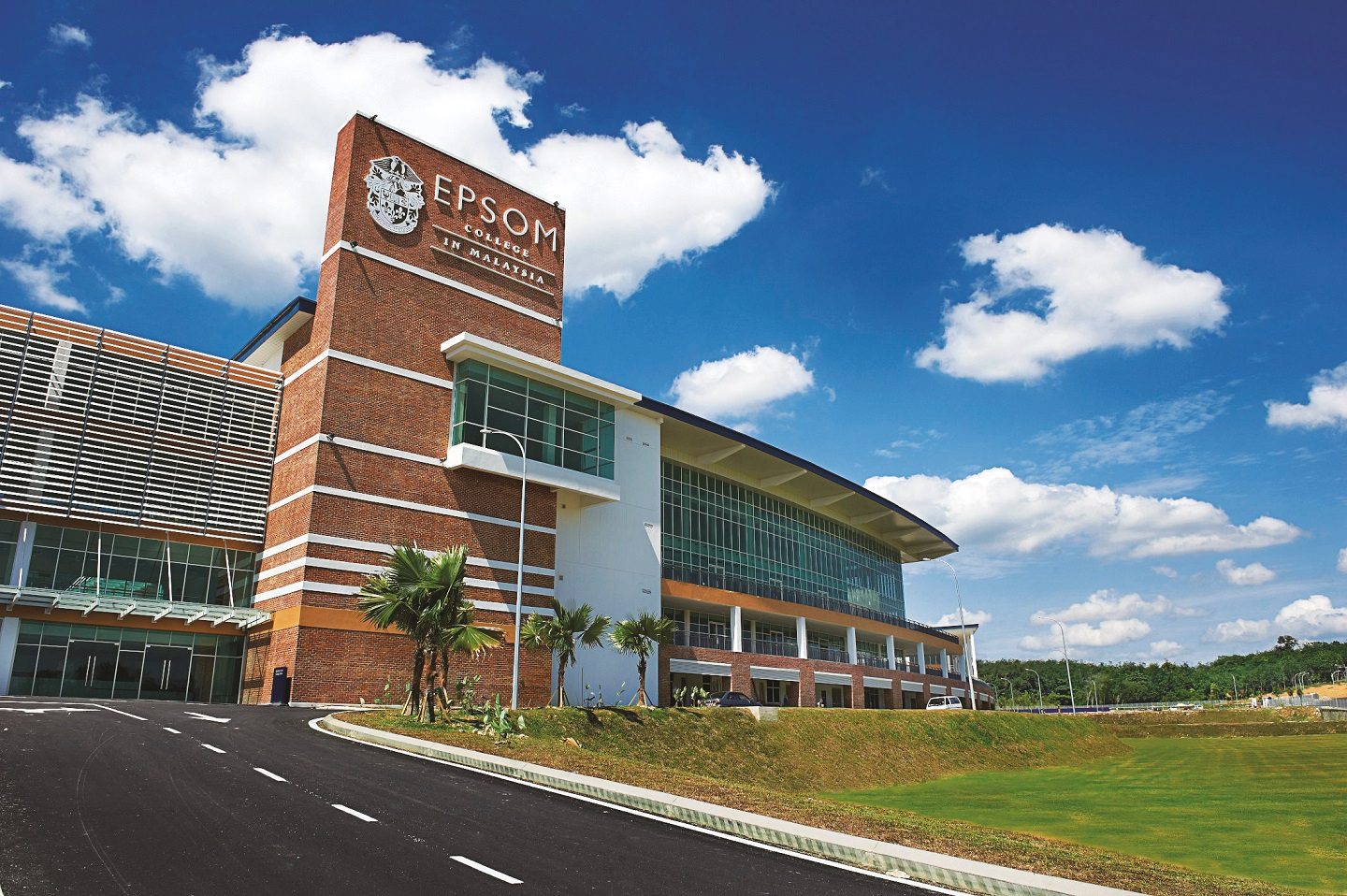
This sister chapter of Epsom College UK is the only international campus (Photo: Epsom College)
A 15-minute drive from Kuala Lumpur International Airport, sprawled across 50 acres of low-density land, is Epsom College in Malaysia (ECiM). This sister chapter — and the only international campus — of Epsom College in the UK opened its doors in September 2014 to recreate the English boarding and education experience in the warmer climes of Southeast Asia.
Founded in 1855 by the Royal Medical Foundation to educate the children of medical professionals, Epsom College has since become the benchmark of a holistic boarding experience with its equal emphasis on education, extracurricular activities and pastoral care. ECiM comprises the Prep School, catering for day pupils aged between three and 11; and the Senior School, accommodating both boarding and day pupils until Year 13 (age 18), following the British curriculum of IGCSEs and A-levels.
Traditions of the 166-year-old institution are honoured here: from the five houses (Carr, Crawfurd, Granville, Rosebery and Propert), which are the students’ home away from home, to the pastoral team of housemasters or housemistresses, resident tutors, matrons and stewards. The rambling estate in Bandar Enstek boasts state-of-the-art facilities, including rugby pitches, squash and badminton courts, a swimming pool, 594-seat theatre, an outdoor amphitheatre, a dance studio, dedicated art and design and technology workshops, and a music department with 20 practice rooms and five ensemble rooms.
pano0009-pano.jpg
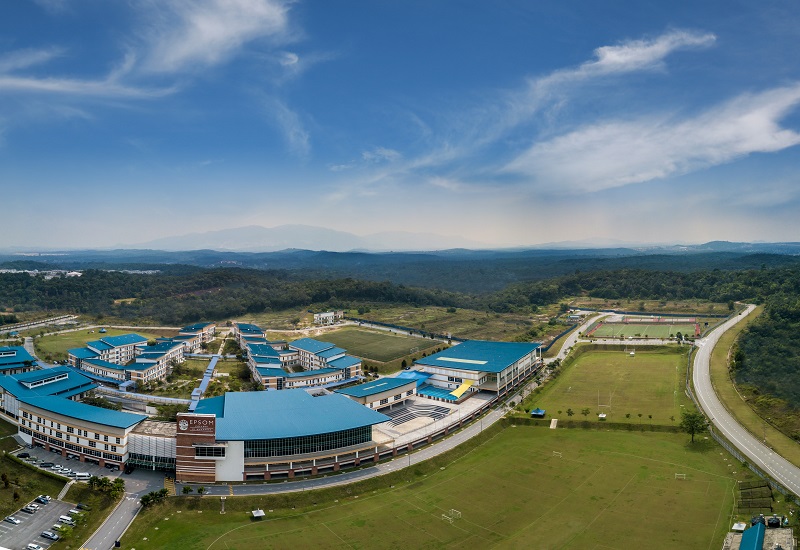
Given the expansive parcel of land dedicated to the school, it is astounding to realise that it caters for fewer than 1,000 students.
“Forms are relatively small, with the older year groups comprising 50 to 60 students, who are divided into tutor groups of 15 or 16 for better individual attention,” says headmaster Matthew Brown. “[AirAsia Bhd’s] Tan Sri Tony Fernandes, who chairs the ECiM board of governors, attended Epsom College in the UK and wanted to grant the same opportunities he enjoyed there to students in the region.”
About 60% of pupils are Malaysians while the remainder hail from across Asia, including South Korea, Japan, India, China and the Maldives.
“We have some 24 countries represented throughout the student body; so, it’s a very international experience,” says Brown. “Proximity to the airport is also an advantage: Parents from Penang, East Malaysia or neighbouring countries sometimes fly in for the weekend to drop by to visit their children on the way to KL.”
The turmoil caused by Covid-19 saw some students return to their home countries or unable to enter Malaysia because of respective border restrictions. Many opted to remain at school, however, enjoying their usual learning experience, albeit with adherence to SOPs such as mask-wearing and social distancing.
20210126_peo_epsom_college_headmaster_matthew_brown_1_sy_1.jpg
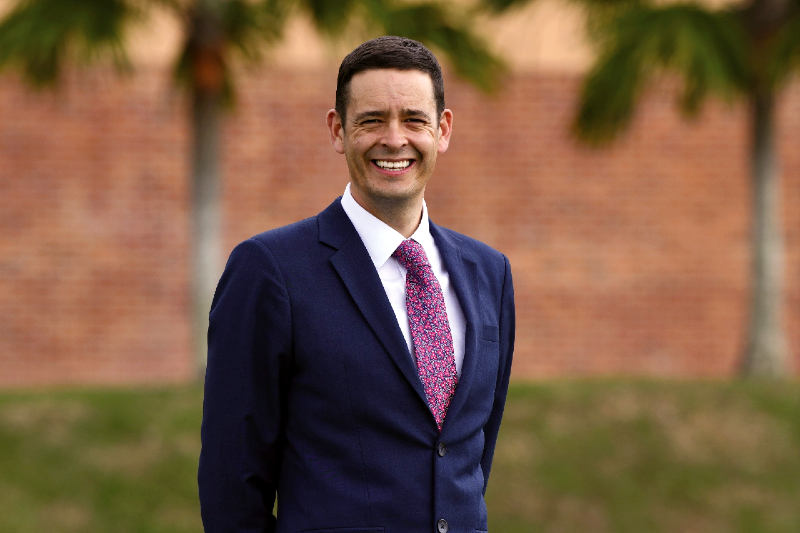
“Things are relatively normal here. The continued presence of schoolmates imparts a strong sense of community at a time when their peers around the world struggle with social isolation. We work closely with the Ministry of Education to ensure the safety of our students and, apart from those sitting exams, the rest of our students are practising remote learning to limit their movement,” says the headmaster. “They follow their ordinary timetable and access lessons online on their personal devices, with tutors always at hand in case they run into difficulties. Those overseas log in and join these classes. We recently had a mock IGCSE exam and a student who’s in Morocco sat for it online. The transition has been as seamless as possible in the circumstances.”
A stellar student experience
The biggest difference between ECiM and that of the English chapter is the presence of air-conditioning units in the rooms here rather than the radiators at the latter, jokes Brown. Otherwise, the boarding experience is similar in academic rigour, sporting excellence, opportunities for collaboration and leadership, and a rousing spirit of camaraderie among the multinational student body.
“The only language they have in common with each other is English, so while they might revert to their native language with friends from the same country, they mostly speak English when together. This means that, with a little bit of bravery on their part, students who come to us with poor English proficiency can rapidly improve,” he says.
sports_y1213_rugby_team_1.jpg

Outside of lessons, which dominate weekdays, there are plenty of pursuits to keep boarders occupied. Prep work, or homework, takes place every night under the supervision of tutors. The calendar of activities for evenings and weekends is as varied as one could imagine, spanning everything from sports to board games and quiz nights. Exam-year students might be excused from expeditions such as trail walks around Seremban or an early-morning hike up Broga Hill, but the younger pupils are compelled to participate in most activities. Teachers can also introduce their own off-site interests or specialities to students, including golf at the nearby Kota Seriemas Golf & Country Club or a session at the climbing walls in Cyberjaya.
“We recently organised a barbecue so they could be outdoors and enjoy a sense of normalcy,” says Brown. “We strive for a mix of activities. One they especially look forward to is our trips to KLCC — they come back with bags full of snacks.”
The diverse student population translates into a vibrant multicultural and multi-faith environment that celebrates all festivals and respects cultural sensitivities. Catered meals are halal, but a variety of cuisines are served. Students are also allowed free rein when it comes to bringing their own snacks, which leads to the excited exchange of novel treats that makes for interesting conversation and organic cultural education.
20210126_peo_epsom_college_director_of_adminissions_highers_education_kate_cardon_brown_2_sy_1.jpg
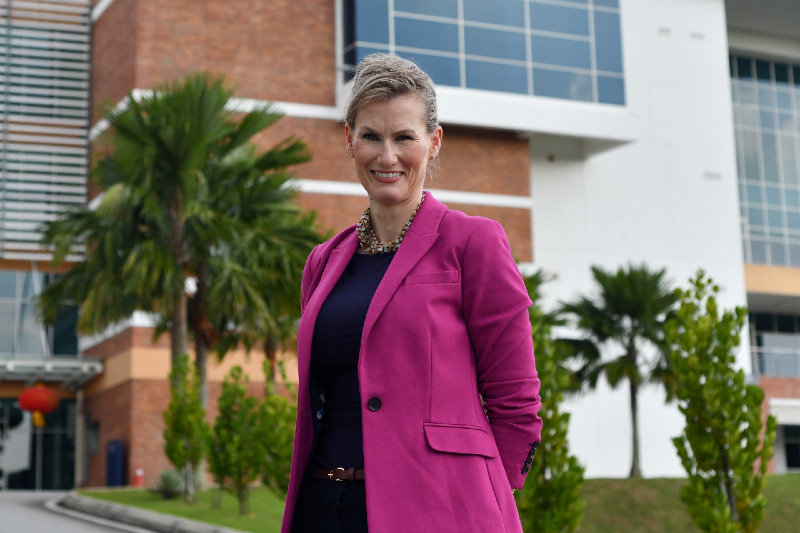
“It’s a great way to experience living with people from other backgrounds,” says Kate Carden-Brown, Brown’s wife and director of admissions and higher education. “One of our students wrote on his college application that Saturday nights here are his favourite because his friends from different countries get together to share their snacks, which are ‘the best bits of them’. We also encourage students to develop and run their own initiatives, whether it’s setting up academic societies or hosting debates, discussions or presentations on certain subjects.”
Interpersonal skills such as leadership and teamwork, alongside staple boarding school traits such as independence and self-assurance, are part of the personal development rife at ECiM. This translates well on college applications and builds a strong foundation for venturing out into the real world.
Preparing for the next chapter
Carden-Brown works closely with graduating students on their college applications and is proud of their high acceptance rate to prestigious universities. According to official materials, 58% of Epsom students in 2019/20 are attending their chosen course at their preferred university. The Russell Group in the UK is well-represented on that list — Cambridge University, Imperial College London, London School of Economics and King’s College London, among others — as are prominent schools across the pond, such as Stanford University in California.
“We prepare them extensively for applications and interviews, working with specialists and tapping our network of contacts to find somebody somewhere who is studying a course they are interested in to do mock interviews with them,” she says. “This happened with our two Stanford applicants, for instance. Some students have very firm ideas of what they want to pursue while others might end up in jobs or careers that might not even exist yet. The world is changing so quickly, so we try to encourage them to do what they love and love what they do.”
music-1-1.jpg
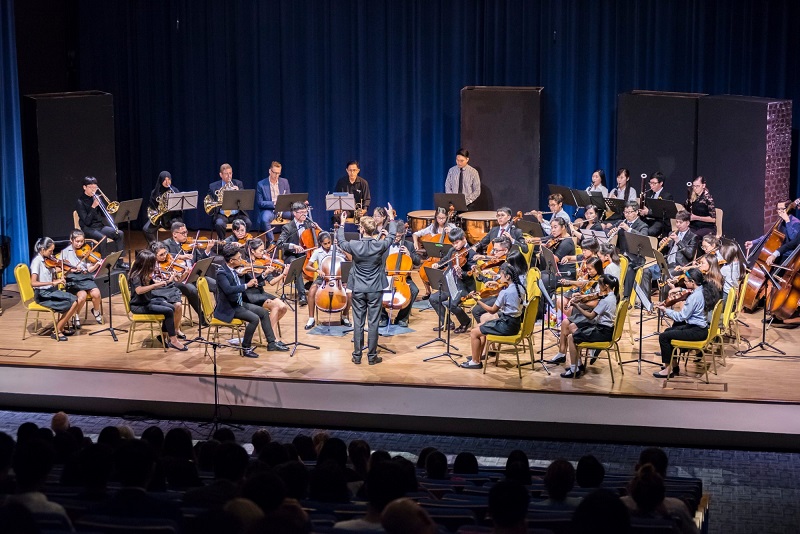
Coaching students for college interviews reveals how much some of them have grown in their time at the school. This is, of course, dependent on individual personalities, but the soft skills gained and exposure to diverse peers and perspectives ensure many of them are able to navigate contentious conversations or new social situations with ease, or even grace and poise.
“In the interview prep, for instance, we work with them on facing interviewers who will challenge them so they don’t answer with meek ‘yes-sirs’ and ‘no-sirs’, but can share and defend their opinions with confidence. Not everyone thrives under this pressure, but they will at least have rehearsed all possibilities beforehand so they go in knowing something of what to expect,” says Brown.
The pandemic has thrown into sharp relief the quality of education and personal attention that distinguishes schools such as ECiM, and Brown and his team are preparing for higher interest in their programme as a result. Most students are full boarders who stay until the half-term holidays, but there are also a few who spend the week at school and return home on weekends.
“Such an arrangement allows parents and children to focus on work and school respectively during the week, and then spend quality time as a family come weekends,” says the headmaster. “We will be launching a weekly boarding package for the new semester in August, though interested parents can speak to us sooner about enrolling their children as weekly boarders.”
epsom-college-girls-house.jpg
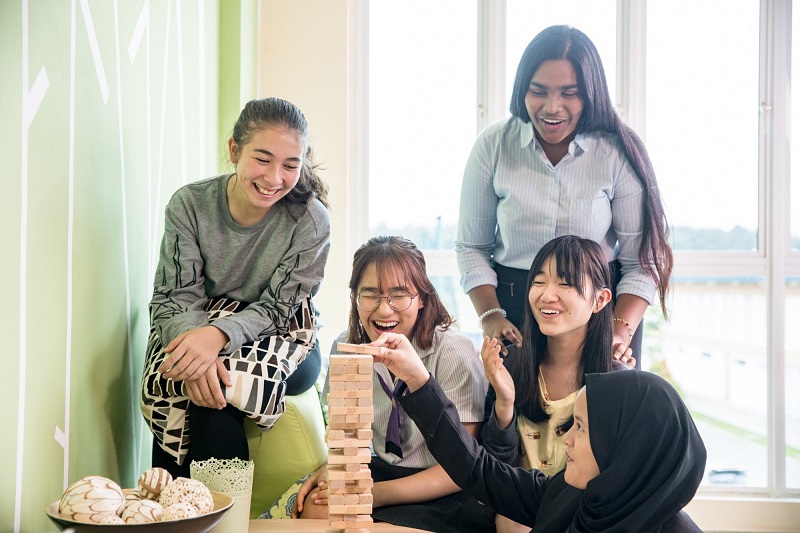
This naturally comes at a price that not everyone can access. The Tune Libra Scholarship was initiated in 2016 by Fernandes, AirAsia chairman and Tune Group CEO Datuk Kamarudin Meranun and ECM Libra Foundation co-founder Datuk Lim Kian Onn to afford financial aid in the form of full or partial scholarships for deserving students. These are not limited to academically inclined students, but available also to those gifted with extraordinary potential for sports, entrepreneurship or innovation. The ECM Libra Foundation announced a further RM15 million Asean Scholarship programme last year to support 20 full and 30 partial scholarships for underprivileged students throughout the region to attend ECiM.
It is a worthwhile investment, with prodigy and Tune Libra scholar Yugendran Rajaendran recently making headlines for being accepted into 10 of the 15 top universities he applied to worldwide. He finally chose to pursue a double degree in bioengineering and mathematical and computational science at Stanford, renowned for its 4% acceptance rate, and will be the only Malaysian in the class of 2024.
“Opportunities like these open doors that can change lives,” says Brown. “The friends you make, the community you build, the experiences you have here — these will stay with you for a lifetime and shape many of your experiences to come.”
This article first appeared on Feb 15, 2021 in The Edge Malaysia.


